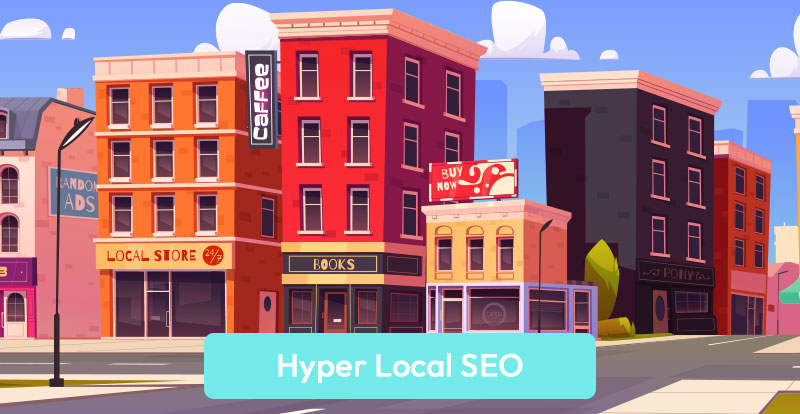You spent hours going through your copy meticulously with an SEO tool or plugin, optimizing content, and adding as many relevant keywords as you can. You may have looked at your competitors and borrowed or adapted a few great ideas. There’s a good chance you also did a Google search or two of your own, looking for what puts some sites higher than others in the results rankings. Well, you might have gone too far.
After hours or days of work, your site isn’t as high up the rankings as you wanted it to be. There’s a chance it might have even gone down the rankings. Don’t cancel that subscription just yet, it might not be the SEO tool’s fault. It’s possible to have too much of a good thing, even when it comes to search engine optimization.
To give a little insight into this problem, I’ve put together a short explainer on how you might have gone a bit too far on your website’s SEO.
What is Over-Optimization?
Some people might say “You can’t have too much SEO!” Those people are wrong.
Over-optimization is a growing problem on the internet, and it’s a problem that search engines like Google have already taken measures to fight. Search engine optimization is the practice of using keywords, tools, and content to drive a website higher in the search results. Any entrepreneur or website owner is going to want to employ as many of those practices as possible to get the right results, except doing too much can do the opposite.
Over-optimization can affect user experience and affect where a website ends up on search result rankings - if it appears there at all. A user won’t want to use a website that seems too artificial and forces SEO content. In a similar way, Google doesn’t want to promote websites that overuse SEO practices, or even purposefully use devious techniques, and there are quite a few these days.
Google has said that they want to show websites that are the most helpful. This does not mean the page needs to have every variation of a keyword, or that the keyword needs to be said a certain amount, or many of the other SEO suggested "requirements" you may find online. To Google, this cheapens and makes it less useful and helpful.
Keyword Stuffing
The most egregious form of over-optimization is also the most noticeable.
Keywords are a central pillar of SEO, but using too many of them can cause a lot of problems, and that’s known as keyword stuffing. Google considers it a form of spam, and most of the users who have to deal with it do too. When keywords are overused and content becomes overstuffed, it no longer feels organic. Customers know when they’re being marketed to, and they aren’t fans most of the time. With too many keywords in your page’s tags, content, or backlinks your website won’t just lose traffic, you’ll lose customers.
Keyword stuffing is considered a nefarious practice when it comes to SEO, one that Google does not take kindly to.
Programmatic SEO & Overuse of AI
Programmatic SEO is when you create tons of pages using a database to fill in a template of content. This is how you get pages like "hair salon Philadelphia", "hair salon cherry hill", "hair salon ardmore", etc until you have hundreds of location pages that are all the same except for the location.
When it comes to AI, while ChatGPT is pretty good, Google still wants your content to help the users who come to your site. If there's no actually helpful info, then it's useless. Many AI's are guilty of super thin content, which is content that doesn't really say anything.
Search Engine PENALTIES!
So you thought SEO was this innocent world of keywords and web content? You’re mostly right, but there’s a darker side to the practice. Black-hat SEO techniques are practices that purposefully go against a search engine’s guidelines. The goal is to manipulate search results rankings and get websites higher than they should be.
Google has its own guide to start using SEO on its platform, and it includes a lengthy list of restrictions.
Hidden text, buying links, cloaking, and keyword stuffing are all practices that are prohibited by Google’s rules. Does that mean everyone follows them? Of course not, but those who don’t follow them can sometimes receive huge penalties. Google will not only force the website further down the search result rankings, it might remove the website from search results altogether.
The User Experience
Some developers will purposefully make it difficult to navigate certain pages to keep the users on the website for longer periods. To the developers who thought they were smart enough to game the system and the users, both the users and the system noticed. Google created penalties for practices like that and users are simply too smart to waste their time on web pages that are scheming against them.
The Dangers of Over-Optimization
When you’re running an e-commerce store or website, there are two specific groups you don’t want to anger: your customers and the search engine they use to find you. Those are essentially your revenue, so they need to be catered to and not hooked like fish. Over-optimization is more prevalent than you think, and it’s taken over Google’s search engine results more often than not. They created a list of restrictions for a reason, but is it enough?
Search engines have done a lot to fight against the practices, but there’s only one other entity that can do more - users.
The consumer isn’t dumb, they just want what they want. They’re fickle, picky, and ready to move on to the next service or product at the drop of a hat. SEO is arguably the best tool a developer can use to draw traffic, but it’s just as easy to use it too much, creating a deterrent to those very same users.
So instead of drawing the ire of the internet, and Google’s banning hammer, utilize good-natured SEO practices that don’t leave users feeling used.



